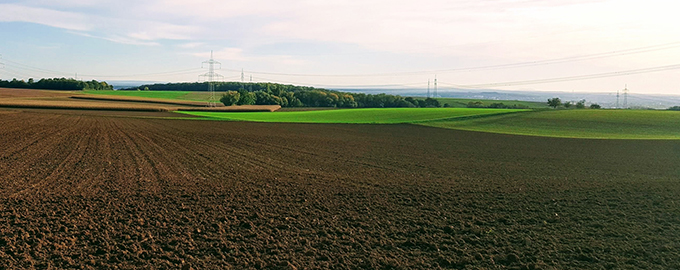Set of reports on State of knowledge in agricultural soil management

For the advancement of climate-smart sustainable management of agricultural soils, we have to know more about three major topics of soil research, namely soil carbon stocks, soil degradation and fertility, and strategies for improved soil management.
A new report addresses state-of-the-art knowledge on these topics.
The report is based on a review of the outputs of completed and ongoing EU projects and interviews with key stakeholders and project owners identified by the national hubs to give insights into the available knowledge and knowledge gaps.
Furthermore, strategic documents, reports and scientific literature of relevance for the status of European soils and their management have been identified and reviewed. This work was split into two so that the review of pan-European studies was conducted in relation to the review of completed and ongoing EU projects, whereas the review of national literature was carried out by the individual EJP SOIL partners in relation to the interviews with the national hubs.
Three overarching issues
The report identifies a list of knowledge needs for each of the three topics: carbon stocks, soil degradation and fertility, and strategies for improved soil management.
For all of these three addressed topics, three overarching topics are identified: peatlands, models and monitoring, and soil compaction.
Peatlands were mentioned for all topics. They are of concern both for their large carbon stocks, as an endangered habitat affected by degradation, and peatland restoration and management is a matter for potential improvement strategies. Models and monitoring are overarching issues as they constitute important tools, which are needed to tackle problems on all topics. A further issue that recurred in all three topics is soil compaction, which demands improved management, as it affects C stocks and results in soil degradation. These three issues demand assessment and improved management.
The positive conclusion from the report is that the majority of knowledge gaps mentioned by national experts have been envisaged within the proposal and the roadmap of the EJP soil.
For example, the need for harmonised soil data and aligned monitoring programmes already receives major attention as an entire work package (WP6) in the EJP soil framework programme is devoted to this matter:
Nonetheless, this report will help to prioritise research according to the raised knowledge gaps. It may also help to include some important aspects and specific research questions listed in the tables herein, which now can receive special attention.
Contact
- Sophie Zechmeister-Boltenstern, Professor at the University of Natural Resources and Life Sciences, Vienna, sophie.zechmeister@boku.ac.at
- Lars Munkholm, Professor at the Department of Agroecology, Aarhus University, lars.munkholm@agro.au.dk